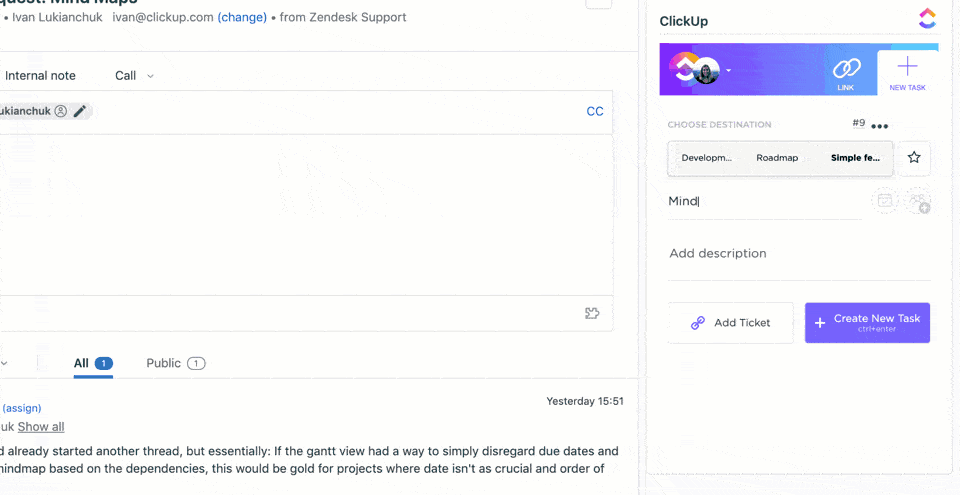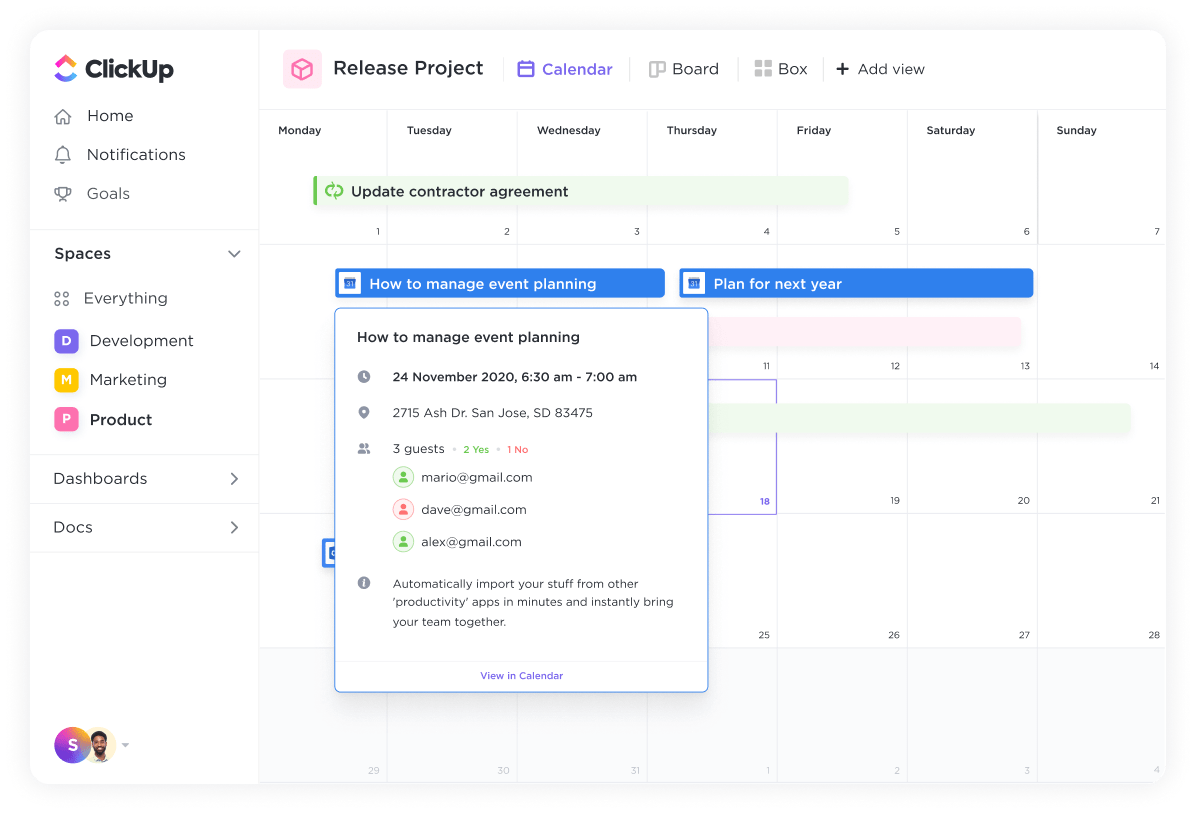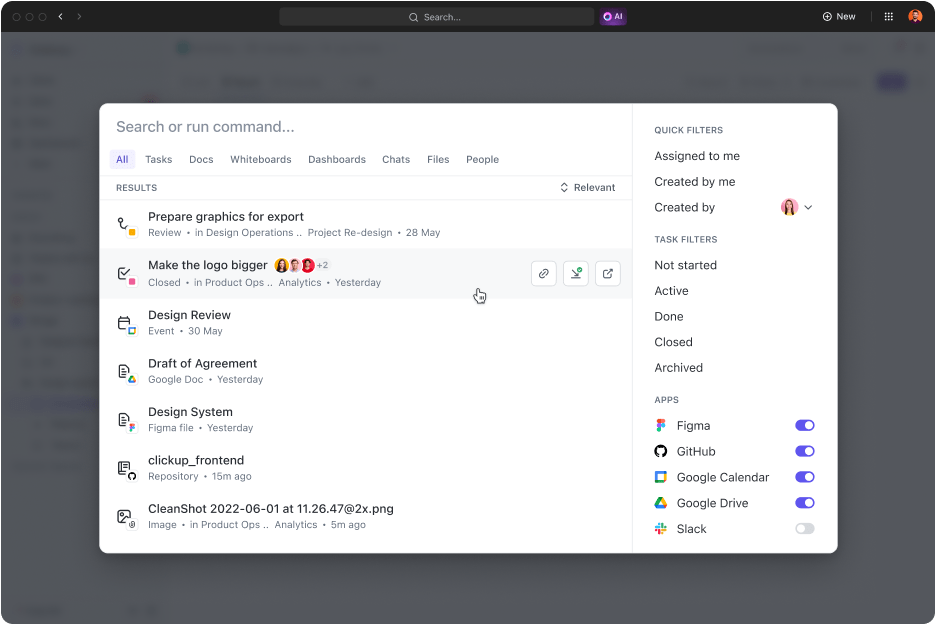5 Must-Have CRM Integrations for Your Business in 2025

Sorry, there were no results found for “”
Sorry, there were no results found for “”
Sorry, there were no results found for “”
Customer relationship management (CRM) software allows you to input client-related data into a single platform, ensuring that all your internal teams, such as sales, marketing, product, customer support, etc, are in sync. However, since each department has unique requirements, they can use specialized tools that address a specific business area.
In an ideal world, customer data should flow seamlessly between all your tools. Unfortunately, that is not the case with most businesses. Businesses are dealing with vast amounts of customer data coming in from multiple channels, and this needs to sync up so that companies can make data-driven decisions and improve customer experience.
If seamlessly connecting all your applications and platforms feels like a dream, CRM integrations are just what you need. This blog explains how CRM integrations work and looks at some of the top CRM integration tools that should be part of your technology stack.
CRM integration is the process of connecting your CRM software with third-party applications seamlessly. It helps you eliminate the need for constant toggling between systems and updates information in real-time. Thus, integrations allow you to create automatic pathways instead of manually updating or copy-pasting information in two tools.
For example, if you use a third-party tool to manage your email marketing, information like the number of emails delivered, opened, link clicks, and other metrics will be tracked by the email marketing tool. This is also crucial information for your sales team, as it helps your teams understand the level of engagement and interest. But here is the catch: all this data is currently in different tools, so your teams may get outdated or incomplete data.
With CRM integration, you can connect both tools and ensure that information is updated in real time. Thus, when an email marketing campaign is launched, results are automatically tracked and populated within your CRM system. This also syncs with each account or contact, ensuring your sales teams get complete information on customer engagement and can make accurate sales pitches.
Integrating your CRM with other tools in your tech stack has several benefits. You can gain accurate and up-to-date information, no matter your tool or platform. Additionally, you gain the following benefits of CRM integration:
Say goodbye to repetitive tasks like manual data entry across different systems. Integrations automate data transfer, freeing your team for more strategic and impactful work. Using CRM integration, you can:
An integrated CRM helps ensure that data is always accurate and updated in real time. This enables you to avoid any errors or mismatches caused by your records not being in sync.
For example, if you are using Zendesk CRM for your ticketing and customer data management, you can use the ClickUp Zendesk Integration to:
View links in ClickUp and Zendesk with real-time status updates

When your CRM platform is integrated with your entire tech stack, you can always get up-to-date and complete information about your customer interactions. This helps you to:
By breaking down data silos and fostering a connected experience, you build stronger relationships, boost customer satisfaction, and, ultimately, drive loyalty and advocacy.
Since your crucial customer information no longer resides in data silos, each team can access data in real time, improving overall team communication and collaboration. Thus, your teams can collaborate and work together more effectively, helping you run your business more innovatively and streamline operations. Moreover, with all teams working from a single source of truth, teams can make decisions faster and with greater confidence.
Seamless data updation ensures that your sales teams get accurate information and that this data is not lost in translation between multiple systems. This helps you to:
Thus, CRM integrations catalyze sales growth, helping you acquire new customers, retain existing ones, and maximize your revenue potential.
With all your data integrated into your CRM system, you gain valuable insights into your customer journey. This empowers you to track customer behavior across multiple channels and understand how they engage with your brand, which is vital for your marketing, sales, and support teams to function effectively.
You can use this customer information for further data analysis and to create robust funnel reports. This lets you gain insights into your sales, marketing, and support efficiency. You can pinpoint potential bottlenecks in your overall strategy.
With this data-driven approach to CRM, you can make informed decisions about your marketing, sales, and customer service strategies, ensuring they align with your audience and drive real results.
CRM platforms are constantly evolving, as are communication channels, business tools, and other applications. These small changes can often hamper the seamless flow of information and lead to CRM integration challenges:
The ideal way to prevent these issues from coming up is to check proactively whether the tools and CRM you opt for provide the required integrations.
For instance, a comprehensive CRM platform like HubSpot is ideal for multiple requirements, including marketing, sales, service, CMS, and operations. Plus, it offers seamless connectivity and several integrations, including a ClickUp and HubSpot integration. This allows you to:

Related: The best Hubspot integrations
There are different types of tools and CRM integrations that you can opt for, depending on your specific needs and budget. To make this decision, it is vital to understand the types of CRM integration available.
Let us explore some key types of CRM integrations to help you supercharge your sales, marketing, and productivity requirements:
Email marketing software is crucial to any organization’s outreach and sales efforts. There were 4.26 billion email users in 2022, making email one of the most promising channels to connect with prospects, customers, and partners.
Integrating your email marketing solution with your CRM is a great option, as it will help you automatically capture and organize your customer information. Plus, you can track vital metrics like bounces, unsubscribes, and undelivered emails.
Email integration will allow you to automate processes such as sending welcome emails to new leads, triggering lead nurturing sequences based on the customer lifecycle journey and behavior, and personalizing sales proposals using CRM information.
Popular email integrations for CRMs include Gmail, Microsoft Outlook, Mailchimp, and Omnisend.
Want to supercharge your meetings and overall planning? Calendar integrations can help you do this by enabling you to track and organize appointments from within your CRM. You can schedule important customer events and automate processes like sending meeting invites, reminders, and notifications. This helps you avoid double-booking and get a holistic view of your team’s schedules when setting up meetings.

Popular Calendar integrations for CRMs include Google Calendar, Microsoft Office 365 Calendar, Calendly, and Notion Calendar.
Want to offer real-time support to website visitors? Or have chat conversations with customers so they get the support they need? This can all be done using communication integrations. These integrations allow users to chat with your support teams or sales team using a familiar channel or app and automatically record these conversations in your CRM. Some of the best CRM integrations in this category include:
Account management integrations focus on enhancing customer billing, invoicing, and other account-related activities. By integrating these with your CRM platform, you can automatically generate invoices for closed deals, sync customer payments with accounting software, and reconcile customer invoices and payments.
Examples include FreshBooks, Zero, QuickBooks, and Paycove.
Most businesses rely on helpdesk software for customer support and ticketing requirements. These solutions help sync your customer tickets with CRM platforms, allowing agents to access customer information and history and track past issues to provide a quick and satisfactory resolution.
Examples include Freshdesk, Zendesk, Salesforce, ServiceNow, and Microsoft Office Dynamics 365 Customer Service.
CRM integrations are the secret sauce for efficient workflows, happy customers, and improved productivity. To help you pick the correct integration platform for your CRM tools, here are the top 5 CRM integration tools based on usability, features, and customer ratings.
ClickUp is an all-in-one productivity platform that offers all the key features required by sales and marketing teams to streamline customer relationship management processes. You can automate CRM tasks, keep track of your client timelines and projects, and visualize your sales pipeline in over 15+ unique views, including Calendar, List, Table, Kanban-like Board view, and more.
ClickUp also boasts an impressive array of integrations with popular CRMs like HubSpot, Zendesk, Salesforce, Zoho CRM, Pipedrive, Freshworks, and more.
Zapier is a no-code automation tool that helps you create workflows and automate multiple processes. It allows you to integrate with 6000+ tools, and you can use it to perform multiple tasks such as exporting data into Google Sheets, contacting clients via Slack, sending emails via WooCommerce, and capturing all this information in a CRM.

MuleSoft is an integration platform (IPaaS) that helps you use APIs, CRM integration, and automation to craft unique workflows and processes. The best part about this tool is the drag-and-drop interface with pre-built integrations and API management, and it is ideal for large-scale enterprises with complex integration requirements.

Custom pricing based on API requests
Integrately is an automation software with 8 million pre-built workflows for 1100+ apps. Using this platform, you can connect your CRM with multiple apps and platforms, simplifying complex tasks using one-click automation and workflows.

Zendesk is a cloud-based customer support, sales, and services platform that can help you automate ticketing and support operations. This tool can help you manage customer communication through various channels, automate customer relationship management tasks, create auto-replies, manage knowledge bases, and streamline overall communication. Zendesk also offers integrations with 1600+ apps, including top CRM platforms like Zoho CRM, Dynamics 365 Connector, and Hubspot CRM.

As the business landscape becomes more complex and multi-dimensional, the right CRM is crucial to help you keep track of all your operational tasks, be it marketing, sales, support, or product operations. CRM integration plays a pivotal role by connecting multiple tools and apps into a single platform, providing the proper context to every department.
However, maximizing your business potential goes beyond just business optimization. Each team member needs to perform their tasks effectively and ensure that they reflect overall results. To facilitate this process, ClickUp offers an all-in-one platform consolidating various tools and applications for streamlined collaboration.

Each team member can effectively prioritize tasks, manage their time efficiently, track projects, and understand customer requirements on a single platform using ClickUp’s ready-to-use CRM templates and integrations. Having all your apps and customer data in one place also has a crucial benefit: the ability to find information quickly.
With ClickUp Universal Search, find any file, document, query, or customer data with a simple search query. The search algorithm will scan every connected database and tool to help you get personalized and relevant results in the blink of an eye.

Sign up for a free trial to learn more about ClickUp CRM and take it for a spin. Start your journey today and experience the difference!
CRM API integration connects your CRM system with other tools and platforms using Application Programming Interfaces (APIs). These APIs act as connectors, allowing data to flow back and forth seamlessly. With an easy data flow across multiple systems, businesses can improve marketing efforts and get real-time information.
Enterprise Resource Planning (ERP) software manages your core business processes, including finance, inventory, and manufacturing. Conversely, Customer Relationship Management (CRM) software manages customer relationships and external stakeholders. By integrating both these systems, businesses can gain a unified view of the customer journey, from the prospect stage to order fulfillment.
Since data from one system will be shared with other systems, looking into APIs and the data-sharing requirements is essential. When choosing integration tools, it is always recommended to prioritize providers with robust security measures like data encryption, access controls, and regular security audits. ClickUp, for example, adheres to strict security protocols and industry standards to ensure data remains safe at all times.
Data consistency is crucial for smooth operations and accurate insights. Look for data integration tools that offer seamless connectivity and automatically sync products. ClickUp’s two-way sync ensures that any changes made on one platform are automatically reflected in all connected applications, ensuring that the data in both systems is always up-to-date.
To track the impact of your integrations, you should analyze metrics like lead-to-conversion rate, churn rate, ticket volume, customer lifetime value, resolution time, customer acquisition costs, and more. This data helps you identify areas for improvement and optimize your overall customer experiences.
© 2025 ClickUp